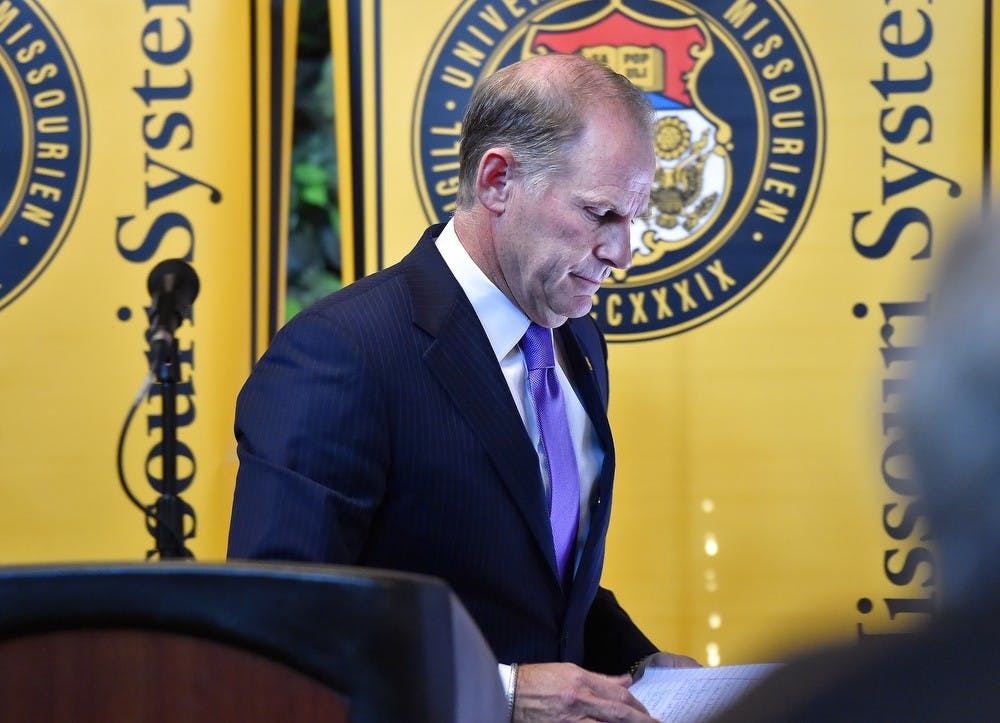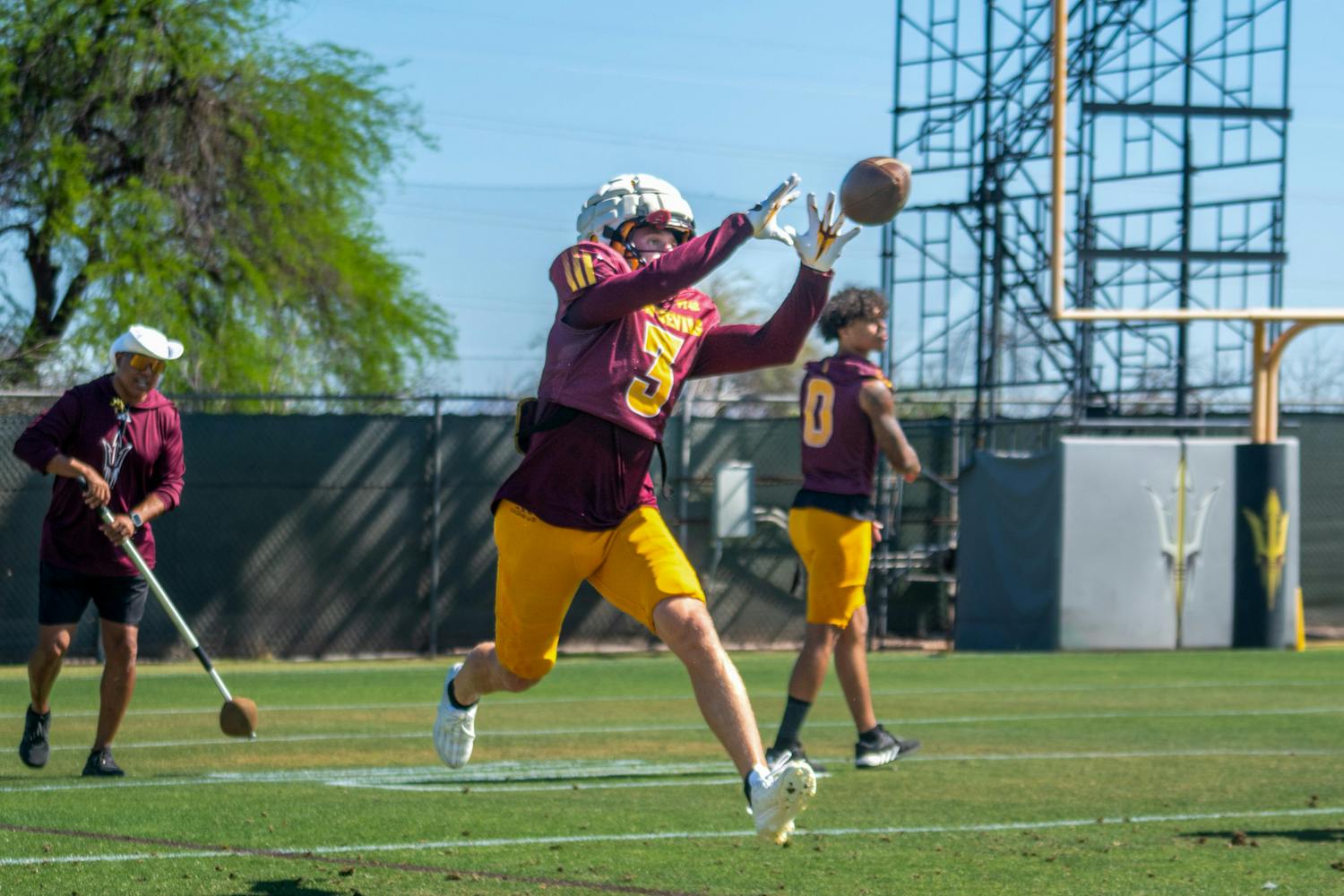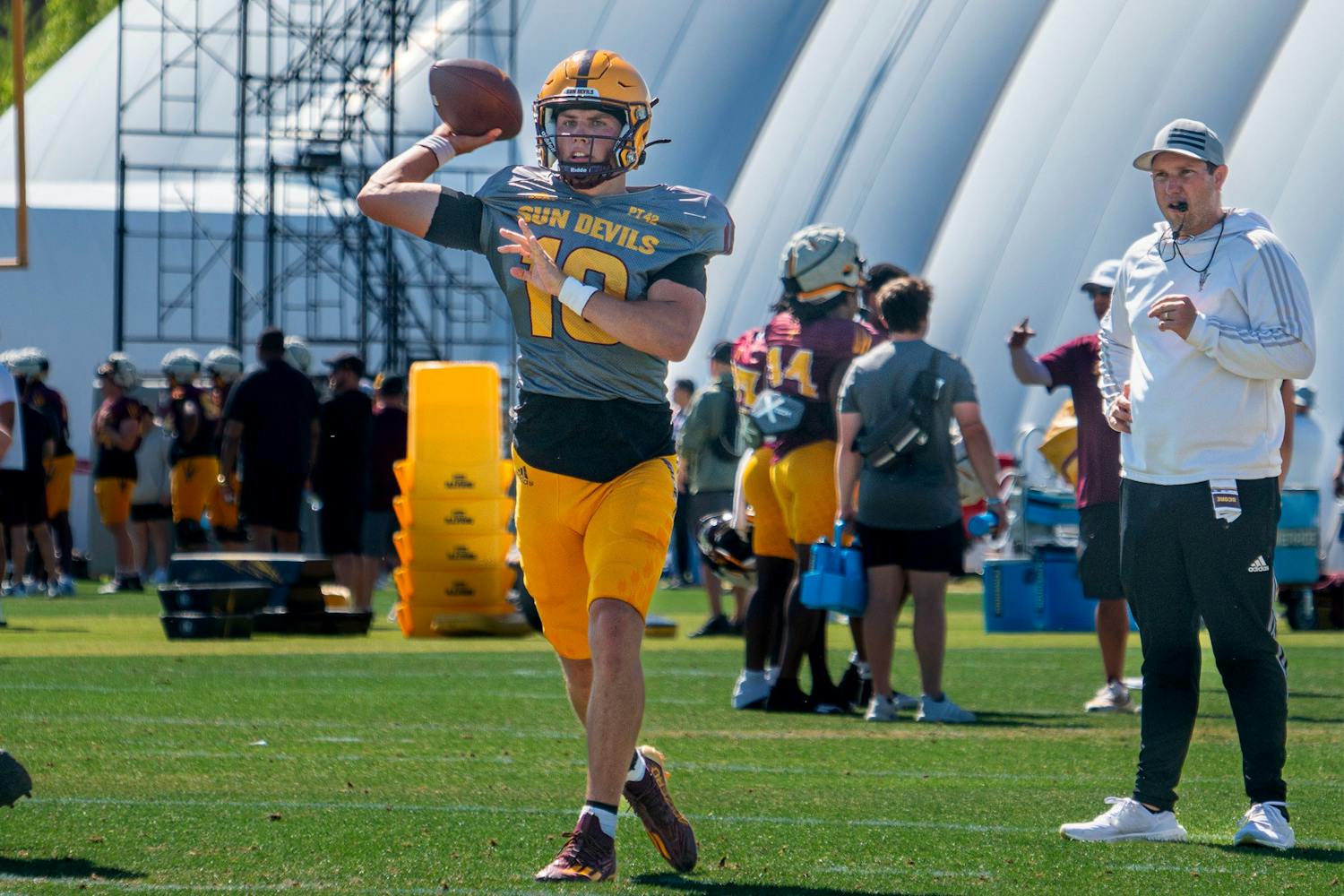Former University of Missouri president Tim Wolfe resigned on Monday in a move which will reverberate around the landscape of college football — and college and university management — for months if not years.
Wolfe's resignation came at the end of a tumultuous period in which the student body raised numerous and varied objections of his and the administration's mishandling of racial tensions on campus and seeming lack of effort towards resolving racist conflicts within the student body.
Students gathered in protests and faculty threatened a walk-out, efforts that spanned cultural and racial lines.
The headline-making event was the decision by several African-American players on the Missouri football team to declare their intentions to boycott team activities until Wolfe resigned, a declaration that was supported by Missouri's head coach Gary Pinkel, whom is white.
Many have been wary about the outcome of the events, expressing fear that this sets a dangerous precedent in which college athletes have too much power and can influence the functioning of a university at large.
Yes, a precedent is being set here, and yes, it does leave a sizable amount of power in the hands of student athletes who now have a known quantity of leverage when it comes to getting certain and significant concessions from the colleges they attend.
But that isn't necessarily a bad thing.
In the case of Missouri, the problems on campus ran deep and had reached an impasse. The African-American students on campus no longer felt comfortable, and racial tensions had reached a point that was creating a deep and dangerous divide through the student body.
Sensing this, the Missouri football team acted in a way that essentially put Wolfe in an arm bar. He had no easy way out.
If the team followed through on its threat, a major revenue generating sport at a premier university would suffer a major blow. The only way to prevent that from happening was for Wolfe to step down.
Ultimately, Wolfe made the choice to resign and his decision was likely the right one. As long as he remained in charge, there was going to be a tense situation that only got worse and worse until things came to a potentially devastating end.
The outcome of this situation isn't really an outcome because the Missouri campus still has a long road of healing ahead of it but at this juncture, Wolfe's resignation shows us that college athletes have a lot of power off the field.
That amount of power may scare some people. The concern that college athletes have suddenly gained a tremendous amount of leverage is based on facts but it may not be all that bad.
In Missouri, the student-athletes responded to issues on their campus responsibly. They assessed a deteriorating situation and identified what they thought would be the best possible solution to the issue.
By taking the stance they did, the Missouri players showed that in the future, athletes can affect meaningful change on their campuses when it comes to race issues.
As long as that power is used responsibly, it signals an important continuation of the idea that sports can serve as a social healer of difficult and divisive problems.
After 9/11, baseball in New York served as a rallying point for the community to heal itself. The Boston Red Sox in 2013 served a similar role after the Boston Marathon bombings.
In Louisiana, the triumphant return and rise to contention of the New Orleans Saints injected life into a city that had been beaten down by Hurricane Katrina.
Last year NBA players wore "I Can't Breathe" T-shirts in support of a movement spurred by Eric Garner, a decision that continued a healthy debate and discussion of police relations with the African-American community.
For as long as sports continue to resonate with society on a meaningful level, there will always be good reason for athletes, even college athletes, to have the kind of influence that benefits their environment.
Reach the assistant sports editor at icbeck@asu.edu or follow him on Twitter @ICBeck21.
Like State Press Sports on Facebook and follow @statepresssport on Twitter.




